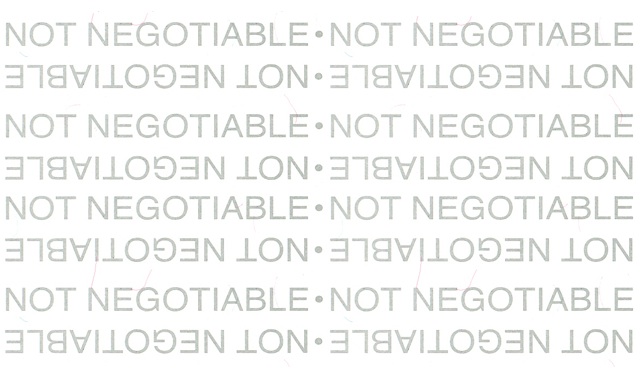Negotiating the American Dream: A Critical Look at the Role of Negotiability in the Foreclosure Crisis
by Thomas Erskine Ice
Contemporary negotiable instruments law developed hundreds of years ago, before every important institution of the modern financial world: incorporated banks, business corporations, developed capital markets, global monetary systems, electronic transfers, and even paper currency.1 It is counterintuitive that this ancient law of negotiable instruments would have any relevance to one of the world’s most sophisticated, cutting-edge tools of high finance — the pooling and securitization of mortgage loans. Yet, the courts routinely look to such law to resolve a foreclosure crisis spawned by the collapse of mortgage-backed securitization, a process which is as strained as trying to decide First Amendment issues using cases pre-dating the Constitution. It is all the more extraordinary that, just as the nation begins to awaken to “robo-signing” and other such pervasive and methodical abuses of the court systems, judges should find themselves slavishly compelled to apply a body of law shaped (and then abandoned) by the very authors of such scandals: the financial institutions.
This article explores the historical underpinnings of negotiability and whether the evidentiary shortcut that negotiability appears to offer as a means of proving a plaintiff’s standing to sue can or should be applied in the context of the foreclosure cases facing the courts today. Examination of the original purposes of negotiability, as well as recent changes to the Uniform Commercial Code, leads to the conclusion that mere possession of a negotiable instrument (the promissory note) is insufficient to enforce a mortgage. The possessor or “holder” must prove ownership of the instrument — a complete chain of title from the original creditor — to invoke the equitable remedy of foreclosure.
Rest here…
~


I am fighting the servicer of my mortgage right now whom is trying to scare me out of my home. the actual lender Lend Aamerica has been out of business for 4 years. they split the note and the mortgage and the servicer is trying to collect on a mortgage company that been shut down for years using their paperwork. I don’t even know if they even bought the note from Lend America and even if they did. I did not sign any agreements with the servicer.
If you go back to ALL the OLD LAWS that was written to protect the homeowners can’t be rewritten for CORPORATION and COURTS gain.
ALL THE OLD LAWS STILL STAND TO PROTECT THE PEOPLE ARE STILL IN EFFECT. THE COURTS CAN’T HIDE OR SWEEP THE TRUTH UNDER THE RUG ANYMORE…
THE HO– USE OF CARDS HAS TO TO ALL COME DOWN…
THE COURTS HAVE TO GIVE BACK ALL THE HOMES THAT THEY MADE huge errors in.
AND stop the OBSTRUCTION of justice so the AMERICAN PEOPLE can RECLAIM their homes…
THE BAILOUT has already paid their debts, and now they DOUBLE DIPPING TO STEAL HOMES that can’t be foreclosed on, because the ONLY CONTRACT BELONG TO THE SUBPRIME BANKS & HOMEOWNERS, but since the CONTRACT has been destroyed, and the SUBPRIME banks ARE ALL OUT OF BUSINESS those homes belong to THE PEOPLE…
YOU can’t bring back a DEAD BANK to COLLECT A DEBT..
STOP DECEIVING THE PEOPLE THE CON GAME IS OVER!!!
The Plaintiff has to prove Control by Delivery and Possession by the Appropriate Person by the Issuer of an Investment Company Security not by Overissue of the Protected Purchaser of a Securities Account. Indorsement or Instruction does not Guarantee the Signature Indorsement. Purchaser must have Proof of Authority with any requisite necessary to obtain registration. To obtain requisite to Security Entitlements all said requirements must be met otherwise….Acceptance, and Consideration in the Conversion of that Instrument by Plaintiffs is proof they are Negligent upon Presentment by Alteration and Acceptance of an Obligation as a Drawer and are in Dishonor and are in Possession of an Overdue Instrument and are in Dishonor in the names of Defendant’s….Plaintiffs are Imposters….Fictitious Payees….Read UCC 1, 2, 3, 4 & 5.
Stripes can you also say this in language we non lawyer folks can understand. I sent your post to my lawyer and he agrees with you but I am lost as you are way over my head.
Thanks for this post, Charlie you too..Things are getting more our way every day.